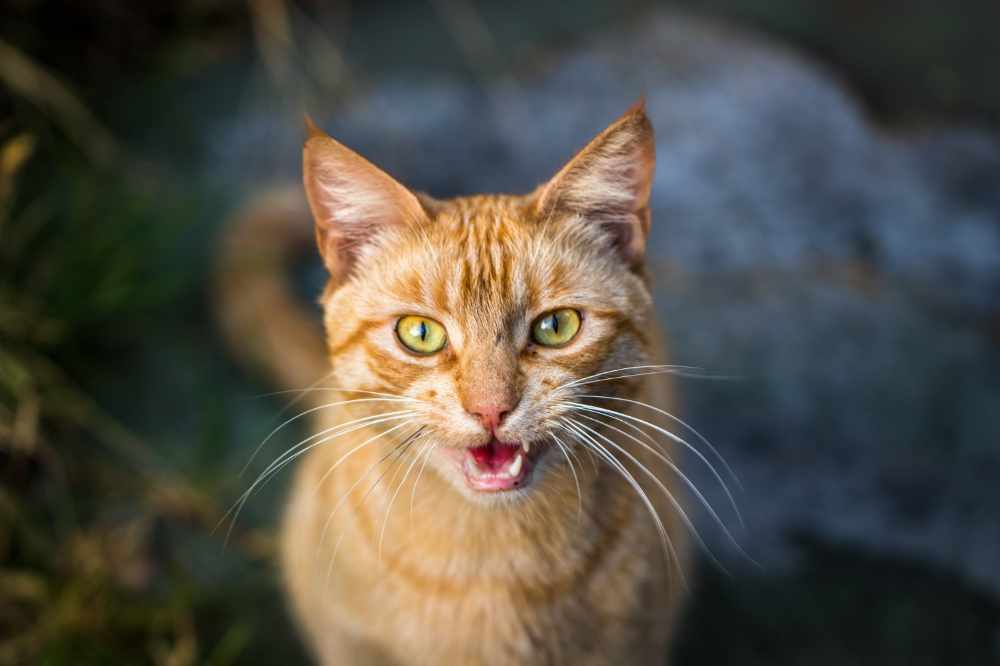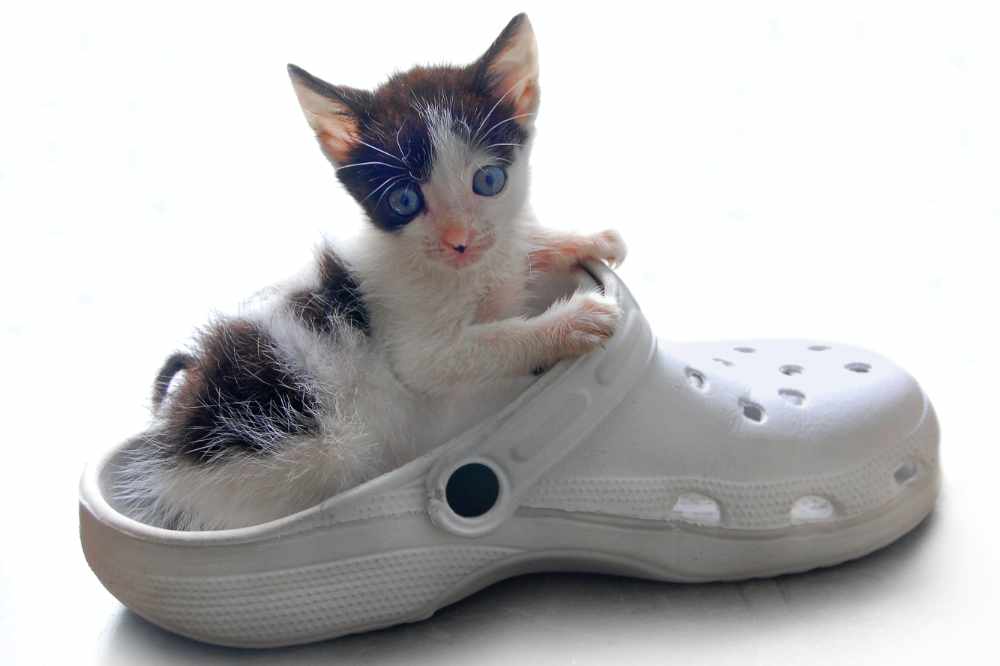If you have a pet cat then you’ll be aware that there are hundreds of questions that arise on a daily basis. Whether it’s in regard to their behaviour, eating habits or just their personality, there are a lot of mysteries that come with cat ownership.
A question that comes up a lot amongst cat owners, especially in the summertime is why is my cat afraid of the ceiling fan? Cats are known to run away, hide and just generally vacate the premises whenever fans get turned on. Today, we are going to get to the bottom of this behaviour and find out the real reason why cats seem to dislike those spinning blades.
Cats hate the ceiling fan because they circle overhead in a similar manner to birds of prey and this is a danger to all little creatures, especially small breed cats and kittens. Some cats hate the changes in light levels, temperature or even the sounds that fans emit.
If you have an anxious cat who hates the ceiling fan then read on. Here is an in-depth look into all the reasons why your cat may be feeling scared, how to spot an anxious cat and what you can do to help alleviate this stress.
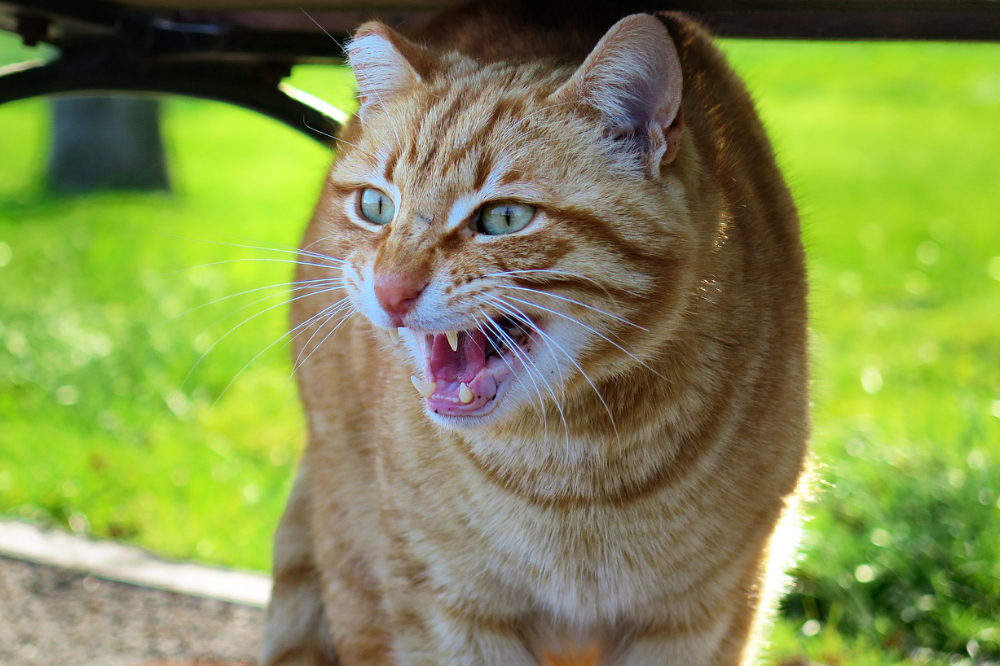
Predators
We often think of cats as top of the food chain predators due to the fact they are carnivores. Cats are defined as obligate carnivores, meaning they must eat meat to survive. Whilst this is true, the size of our domesticated pet cats means that they are also at risk of becoming a prey species.
This is especially true for large birds of prey. These birds like to circle overhead in a similar manner to your everyday ceiling fan. They look for a small furry creature and will swoop and grab without much consideration for what kind of species it is.
Cats have evolved to look out for this kind of movement from above and will do everything they can to take cover so they won’t end up as someone else’s dinner. It’s not unusual for cats to associate ceiling fans with an overhead threat so it’s a good idea to ensure they have a safe space to hide whenever you go to turn the fan on.
Sounds
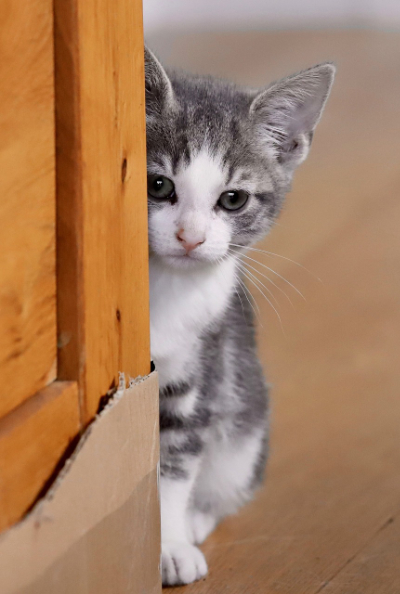
Humans can hear sounds that fall roughly between the 20 Hz to 20 kHz frequency range. By comparison, a cat can hear sounds from 48 Hz to 85 kHz which is a much broader range. Higher pitches of sounds that fall way out of our frequency range can easily be heard by your cat. Fans move air around by rotating and their moving parts can emit a lot of different noises.
From the squeaking and humming of the rotary mechanism to the whooshing of the blades and even noises that arise from other objects in the room being shifted. All these things can really stress or upset your cat and cause them to want to get as far away as possible from the fan.
Shadows
Can have a very keen sense of vision that has evolved to quickly see moving prey animals. Tiny movements of mice and birds set off your cats hunting instincts and gives them a surge of adrenaline ready to make that high energy move to secure their next meal.
Movement is key and a ceiling fan causes lots of disruption to light, casting constantly moving shadows all over the room. Your cat can easily become over stimulated or stressed by all this activity and will likely work very quickly to get away from it altogether.
Temperature Changes
Another reason why your cat may be less keen on the ceiling fan could be due to the sudden temperature changes that it brings about. Cats are sensitive to warmth and cold and will often position themselves on top of radiators, next to sunny windows or beside the fireplace to keep warm.
Your ceiling fan may be cooling the room too much or may be creating a drafty environment that your cat does not appreciate. This can be especially true for very young or old cats who have a more difficult time maintaining their body temperature. It’s a good idea to ensure your cat has a sheltered area to rest whenever the fan is turned on so they can be in control of regulating their environment.
Light
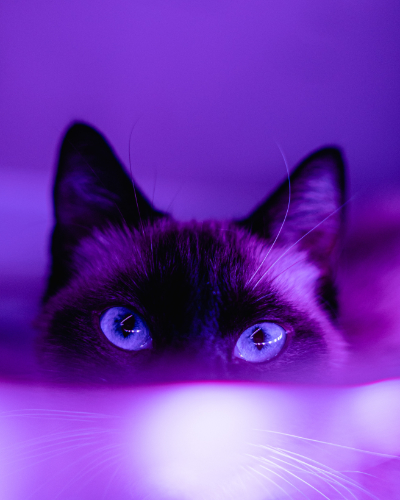
It may not be the ceiling fan that is causing your cat to be afraid. Some cats are sensitive to changes in light levels and may be keen to run away when overhead lights turn on. Cats have evolved very sensitive eyes that can see way more in dusk and darkness than we humans can.
When light enters our eyes it makes contact with the retina which is the name for the area at the back of your eyeball. The light contacting this area comes into contact with specialised cells called photoreceptors and this sets off nerve impulses to the brain which we perceive as vision. In us humans, there is a certain amount of light that will miss the photoreceptor cells so this causes us to have poor vision when it’s dark.
Now, in the case of your cat, they have a specialised area on the retina called the tapetum lucidum which acts to reflect light back towards the retina so they get a wider range of stimulation and can see well, even in low light conditions.
This adaptation causes cats to be around six times more sensitive to light compared to us humans so they can easily become sensitive to intense light. Cats may have more light sensitivity if they have an eye infection, uveitis (inflammation of the coloured part of the eye), glaucoma (increased pressure in the eye), dry eye (lack of tear production) or if they are albino.
If your cat has suddenly become light sensitive or if you notice any changes in the eyes it’s really important to take them to your veterinarian. A small issue left untreated can cause your cat to go blind so don’t ignore the warning signs.
Easily Startled
Everything else considered, some cats are simply easily startled for a whole host of reasons. Sometimes we never find out what it is that our cat is afraid of as fear is a subjective state and unfortunately, we can’t simply ask our cat what the matter is.
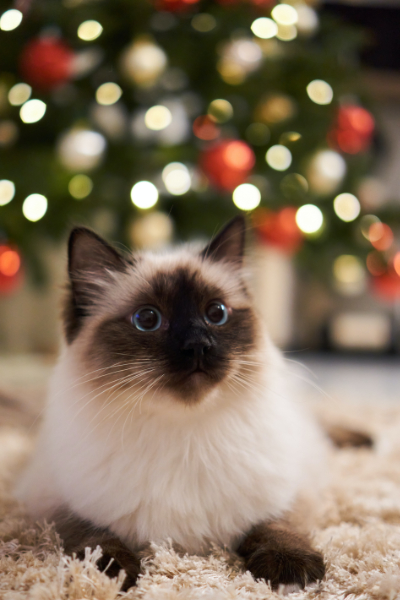
Some cats have a difficult start to life and rescue cats may have suffered abuse or neglect which can cause them to be ultra fearful of their environment. Sometimes cats will have suffered a traumatic situation, maybe they have been bullied by a neighbour’s cat or chased by a dog or wild animal and this can make them on edge a lot of the time.
If your cat suddenly seems afraid of the ceiling fan it may not be about the fan at all, they are just a worried little kitty cat and cautious of their surroundings.
Signs of An Anxious Cat
Anxiety can present in many different ways in your cat and it’s important not to ignore the signs as a stressed cat can easily become an unwell cat. Some cats will simply run away and hide when they are scared but some will lash out and swipe or try to bite.
Some cats will stop eating whereas others will eat too fast and throw up. Some cats will develop urinary problems and may show signs of cystitis (struggling to urinate, passing blood in the urine, yowling when trying to go and urinating outside the litterbox).
Sometimes cats will over-groom themselves with stress and will pull out chunks of hair leaving bald patches across their body. This can also lead to skin damage if they are grooming too much so you may notice scratches or areas of broken skin.
How to Help Alleviate Anxiety
If you feel your cat is displaying any of these symptoms the first step is always to have a chat with your veterinarian to make sure it is stress and not another kind of illness that is causing these changes in your cat. Your veterinarian will have tips and tricks to help calm your cat so this can be a really worthwhile appointment.
All cats can benefit from the use of calming pheromones with products such as Feliway to help create a sense of calm and security in their home. Some cats get stressed by loud noises and activity in the home so providing them with an easy escape route and a quiet, safe place that they can hide can make all the difference.
Pay attention to their litter tray and food bowl placement. Cats feel very vulnerable when eating or going to the toilet so make sure they are not cornered when it comes to these activities.
Speak to your children so they can understand how they may be stressing your cat and why it’s important to give them space and remain calm around their pet.
If it truly is the ceiling fan that’s causing high levels of stress for your cat try to avoid using it when they are in the room. If you must switch it on, try using pheromone diffusers and sprays on your cat’s bedding and give them lots of affection so they hopefully find it a more positive experience.
It can take time but in the end, all that effort will pay off when you have a calm, happy cat.


